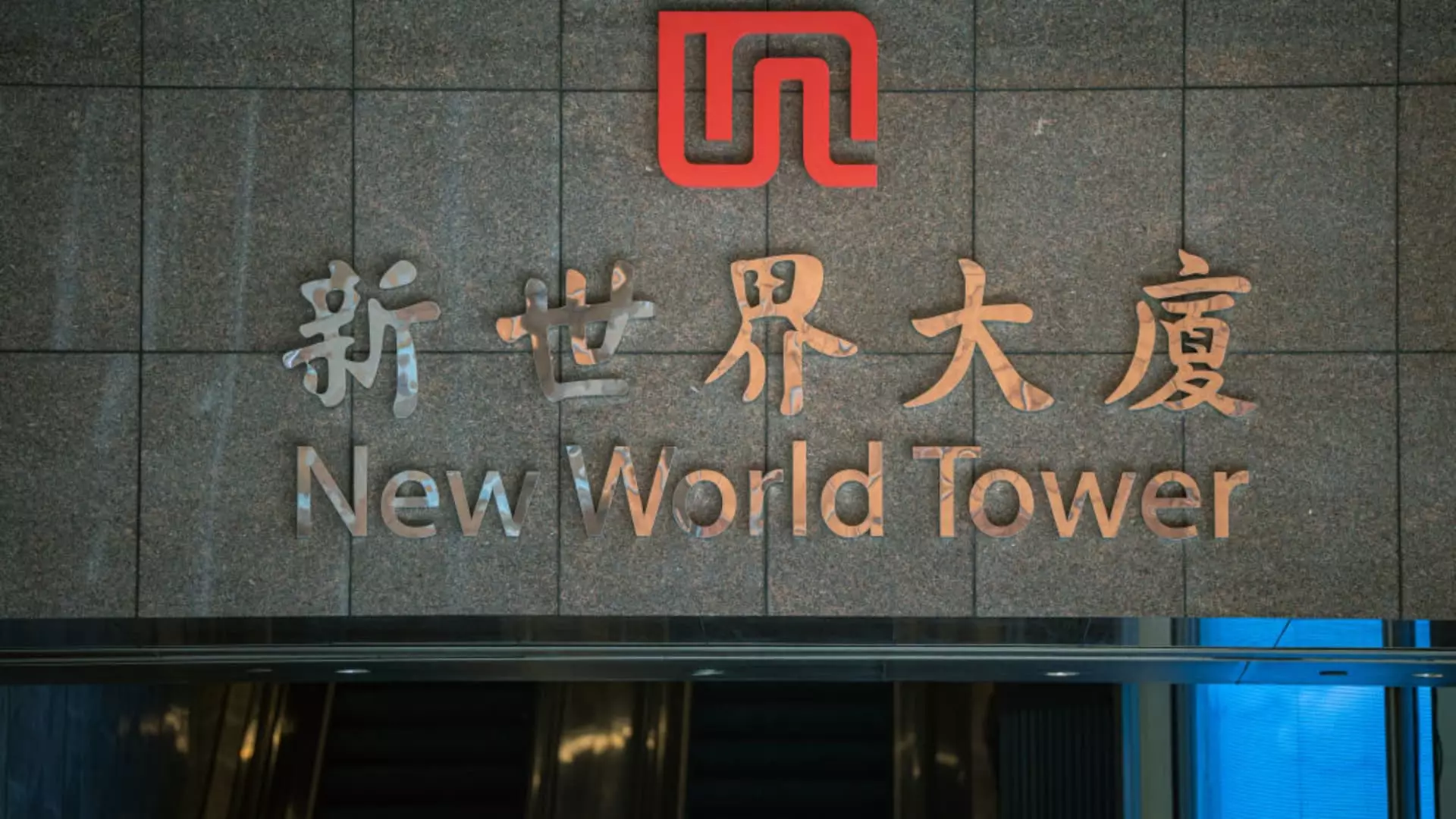In a surprising turn of events, New World Development, a significant player in Hong Kong’s real estate sector, experienced a notable increase in share prices following the resignation of Adrian Cheng, a prominent figure within the company’s founding family. The stock rose by 23% as trading resumed, highlighting how pivotal leadership changes can influence market perceptions. Adrian Cheng’s exit was announced alongside his intentions to focus more on public service and personal projects, a decision that sparked both curiosity and speculation about the future direction of the family-led enterprise.
This sudden leadership vacuum has led to the appointment of Eric Ma Siu-Cheung as the new Chief Executive Officer. Such a transition is not routine in the context of Hong Kong’s corporate landscape, particularly within family-run businesses, where continuity often reigns supreme. Ma’s ascendance to the CEO position symbolizes a significant shift that could either prove beneficial or detrimental, depending on how effectively he can navigate the myriad challenges currently facing the company.
New World Development has recently disclosed an anticipated net loss of up to HK $20 billion ($2.6 billion) for the financial year ending June. This revenue shortfall has been largely attributed to a combination of plummeting sales, substantial investment losses, and impairments. The company’s struggles mirror broader economic traumas affecting the property market not only in Hong Kong but across mainland China as well. High levels of corporate debt add to the complexity, leaving the new leadership with formidable obstacles to tackle.
The current financial turmoil in the property sector is further compounded by a sluggish economic environment and restrictive market conditions. Analysts suggest that these factors could threaten the stability of other stakeholders in the industry, emphasizing the critical need for informed and robust management strategies in navigating the turbulent waters of real estate.
Interestingly, the sudden rise in New World Development’s stock price can be partly associated with broader trends in the Chinese market. The rally in Hong Kong and mainland equities can be traced back to recent stimulus measures introduced by China’s central bank. Such fiscal maneuvers reflect a concerted effort by the Chinese government to rejuvenate the faltering real estate market, signaling a potential shift in investor sentiment. The question remains whether these measures will yield lasting improvements or merely act as temporary palliatives.
Alicia Garcia-Herrero, the chief economist for Asia Pacific at Natixis, emphasizes the pressing need for sound corporate governance as a primary driver of success in such uncertain times. She argues that reliance on family lineage to dictate leadership roles may not be sustainable. This perspective places the spotlight on the necessity for leaders who are not only well-connected but also possess the requisite experience to navigate complex market dynamics.
While Adrian Cheng’s resignation from New World Development has generated an immediate uptick in share prices, the underlying challenges facing the company and the broader real estate sector remain formidable. Future growth will likely hinge on the ability of the new CEO, buoyed by external economic supports, to implement effective strategies to ensure the firm’s resilience in a changing landscape. As such, investors and analysts alike will be watching closely as this narrative unfolds.

